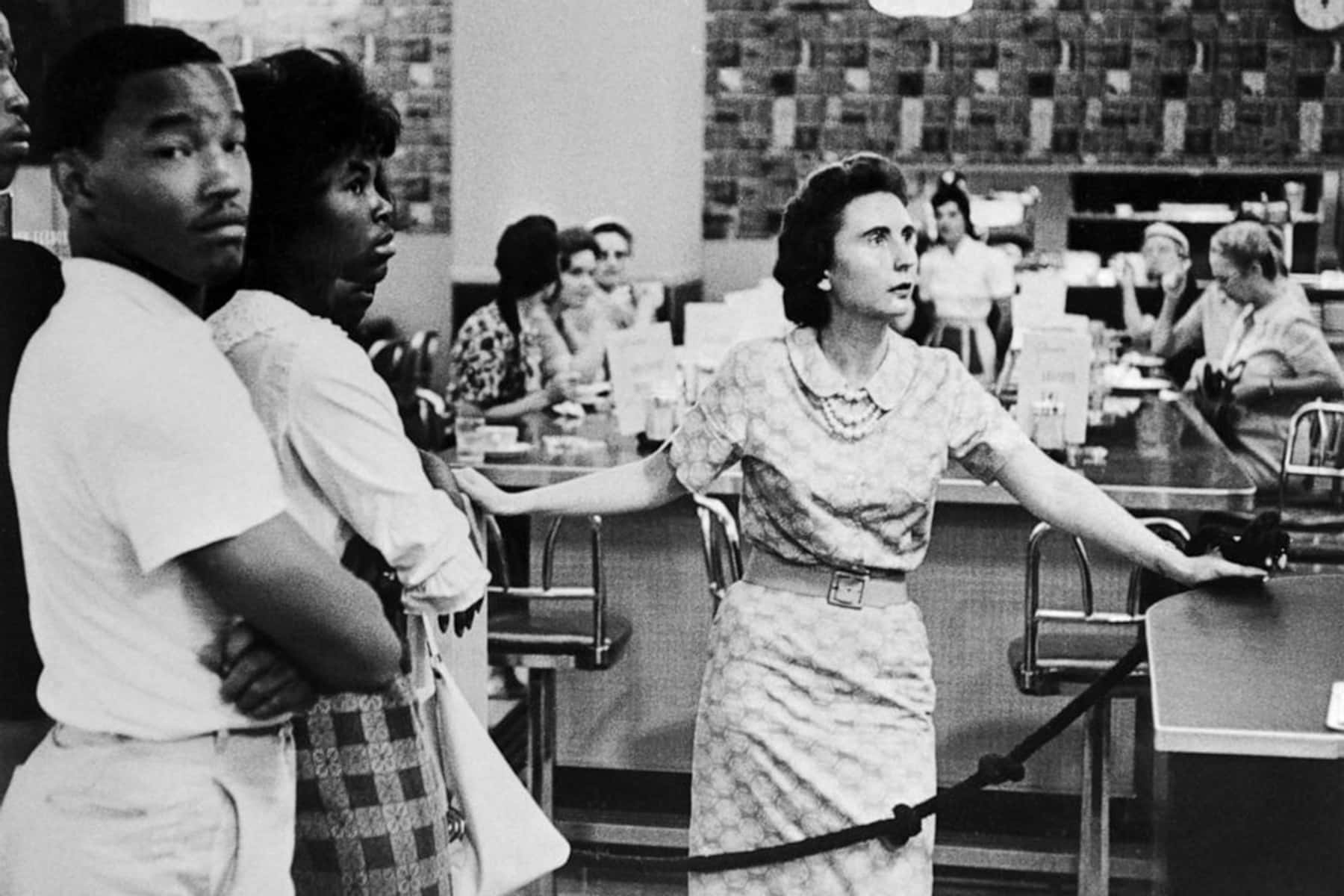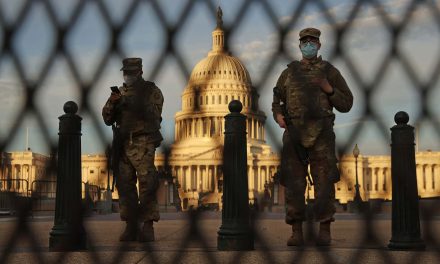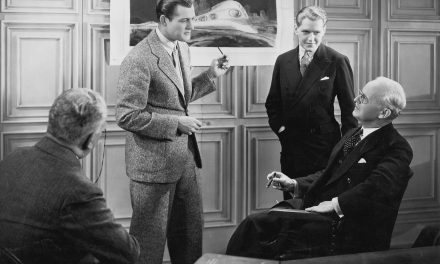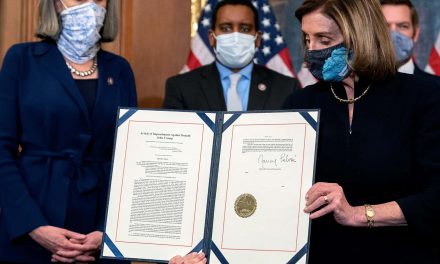
As expected, the House Republicans elected Elise Stefanik (R-NY), Trump’s choice for conference chair, to replace Representative Liz Cheney (R-WY). This means that the four top House Republican leaders — Minority Leader Kevin McCarthy (R-CA), Minority Whip Steve Scalise (R-LA), Stefanik, and Policy Committee Chair Gary Palmer (R-AL) — all voted to overturn Biden’s 2020 victory after the January 6 attack on the Capitol.
Stefanik thanked “President Trump for his support,” saying “he is a critical part of our Republican team.” She went on to say that “House Republicans are united in our fight to save our country from the radical Socialist Democrat agenda of President Biden and Nancy Pelosi.”
The May 14 vote confirmed that the leaders of the current Republican Party are willing to abandon democracy in order to save the country from what they call “socialism.”
But what Republicans mean when they say “socialism” is not the political system most countries recognize when they use that word: one in which the people, through their government, own the means of production. What Republicans mean comes from America’s peculiar history after the Civil War, when new national taxation coincided with the expansion of voting to include Black men.
In the years just after the firing stopped, White southerners who hated the idea that Black men could use the vote to protect themselves terrorized their Black neighbors. Pretending to be the ghosts of dead Confederate soldiers, they dressed in white robes with hoods to cover their faces and warned formerly enslaved people not to show up at the polls. But in 1870, Congress created the Department of Justice, and President U.S. Grant’s attorney general set out to destroy the Ku Klux Klan.
In 1871, southern leaders changed their tactics. The same men who had vowed that Black people would never be equal to Whites began to say that their objection to Black voting was not based on race. No, they said, their objection was that Black people were poor and uneducated and would elect lawmakers who promised to give them things—hospitals, and roads, and schools—that could be paid for only through tax levies on people with property: White men. In this formulation, voting was not a means to ensuring equality; it was a redistribution of wealth from hardworking White men to African Americans who wanted a handout. Black voting meant “socialism,” and it would destroy America.
With this argument, northerners who had fought alongside Black colleagues and insisted they must be equal before the law on racial grounds were willing to see Black men kept from the polls. Black voting, which northerners had recognized as key to African Americans being able to protect their interests—and, for that matter, to defend the national government from the former Confederates who still wanted to destroy it—slowed. And then it stopped.
The South became a one-party state ruled by a small elite class, defined by White Supremacy, and mired in poverty. For its part, the North also turned on workers, undermining the labor movement and focusing on protecting the new industrial factories whose owners claimed they were the ones driving the economy.
In the 1930s, the Great Depression changed this equation. When the bottom fell out of the economy, Democrats under Franklin Delano Roosevelt transformed the government to regulate business, provide a basic social safety net, and promote infrastructure. As early as 1937, Republican businessmen and southern Democrats began to talk of coming together to stop what they considered socialism. But most Americans liked this New Deal, and its opponents had little hope of attracting enough voters to stop its expansion.
That equation changed after World War II, when Presidents Harry Truman and Dwight Eisenhower began to use the government to advance racial equality. Truman’s 1948 desegregation of the military prompted southern Democrats to form their own short-lived segregationist party. The Supreme Court’s 1954 Brown v. Board of Education of Topeka, Kansas, decision declaring segregation in public schools unconstitutional enabled opponents of the new government system to tie racism to their cause. They warned that the expanded government meant the expensive protection of Black rights, which cost tax dollars. They argued it was simply a redistribution of wealth, just as their counterparts had done in the Reconstruction South.
With the passage of the 1965 Voting Rights Act, that argument increasingly fed the idea that Black and Brown people were lazy and wanted to receive government handouts rather than work. Businessmen and social traditionalists eager to get rid of the popular New Deal government told voters that government programs to help ordinary Americans were “socialism,” redistributing money from hardworking White people to lazy people of color. They talked of “makers” and “takers.”
To purge the nation of socialism, then, and return it to the pre–New Deal government, they set out to limit voting. In 1980, Paul Weyrich, the co-founder of the Heritage Foundation that has designed much of the legislation currently being passed in Republican-dominated states, said “I don’t want everybody to vote….our leverage in the elections quite candidly goes up as the voting populace goes down.”
By 1986, Republicans were talking about cutting down on Black voters through “ballot integrity” drives. As Democrats sought to expand voting, most notably with the 1993 Motor Voter Act, Republicans began to charge that they were losing elections only because of voter fraud, although experts agree that voter fraud is exceedingly rare and does not change election outcomes. Since then, arguing that they are simply protecting the vote, Republicans have become dependent on ID laws and other voter suppression measures.
But by 2020, it was clear that the Republicans’ drive to slash the government back to its 1920 form, along with the racism and sexism that had become central to the party to pull voters to their standard, had become so unpopular that it was unlikely they could continue to win elections. And so, Republicans began to say that the United States is “not a democracy,” as Utah Senator Mike Lee tweeted in October. “Democracy isn’t the objective,” he continued, “liberty, peace, and prospe[r]ity are. We want the human condition to flourish. Rank democracy can thwart that.”
With the election of Democrat Joe Biden and Vice President Kamala Harris, along with a Democratic Congress, the leadership of the Republican Party has taken the next step. They are rejecting the legitimacy of the election, doubling down on Trump’s Big Lie that he won. Claiming to want to combat “voter fraud,” they are backing bills across the country to suppress Democratic voting, making sure that no one but a Republican can win an election.
Just as White southerners argued after the Civil War, Republican leaders claim to be acting in the best interests of the nation. They are standing firm against “the radical Socialist Democrat agenda,” making sure that no wealthy person’s tax dollars go to schools or roads or social programs.
They are “saving” America, just as White Supremacists “saved” the Jim Crow South.
Library of Congress
Letters from an Аmerican is a daily email newsletter written by Heather Cox Richardson, about the history behind today’s politics













